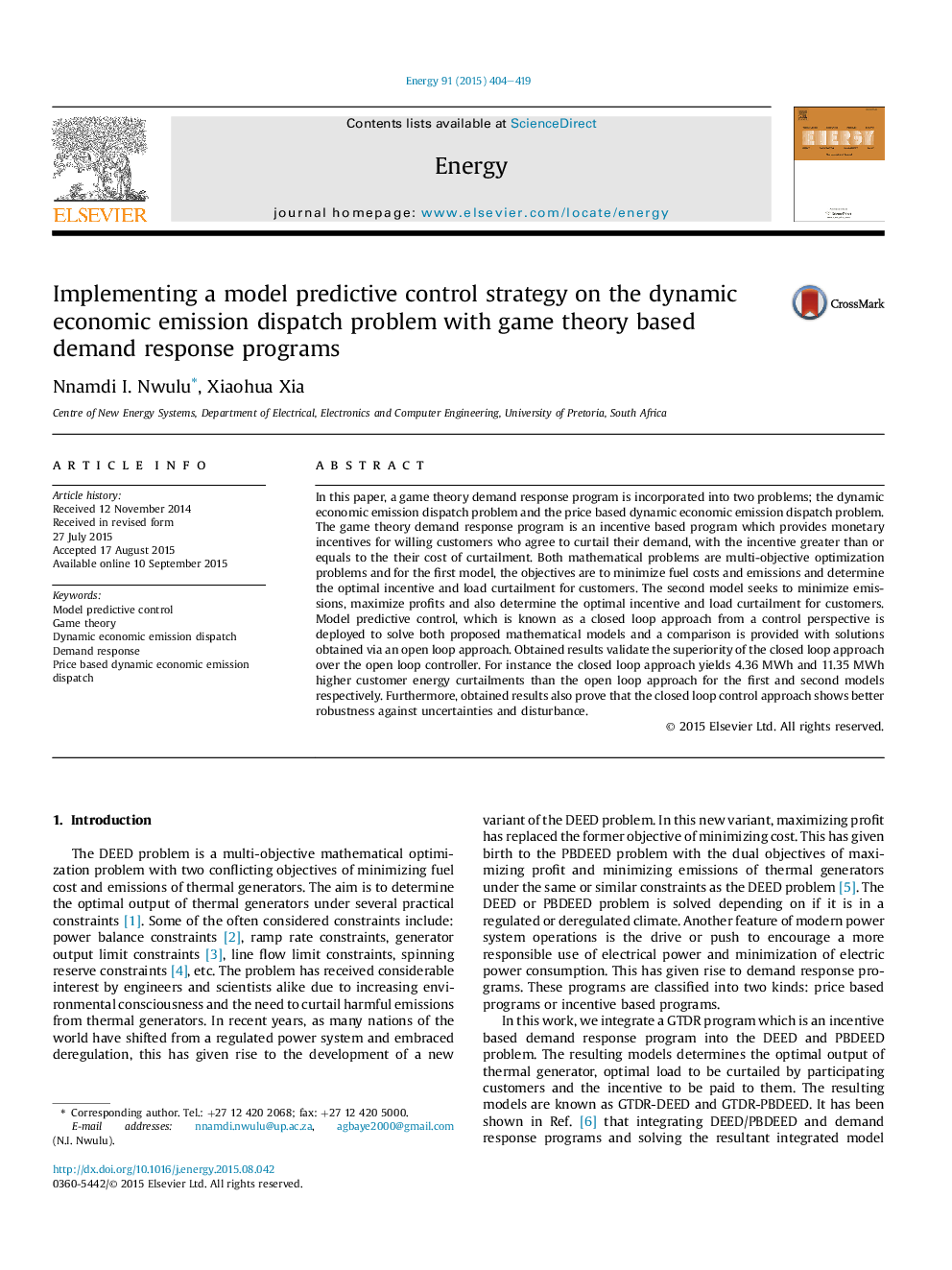| Article ID | Journal | Published Year | Pages | File Type |
|---|---|---|---|---|
| 1731503 | Energy | 2015 | 16 Pages |
•Game theory based programs are integrated into two economic dispatch formulations.•Decision variables are generator output, curtailed load and customer incentive.•Model predictive control is applied on the models and validated with a test scenario.•The control strategy efficiently handles disturbances and uncertainties.•Closed loop control returns better results than the open loop control strategy.
In this paper, a game theory demand response program is incorporated into two problems; the dynamic economic emission dispatch problem and the price based dynamic economic emission dispatch problem. The game theory demand response program is an incentive based program which provides monetary incentives for willing customers who agree to curtail their demand, with the incentive greater than or equals to the their cost of curtailment. Both mathematical problems are multi-objective optimization problems and for the first model, the objectives are to minimize fuel costs and emissions and determine the optimal incentive and load curtailment for customers. The second model seeks to minimize emissions, maximize profits and also determine the optimal incentive and load curtailment for customers. Model predictive control, which is known as a closed loop approach from a control perspective is deployed to solve both proposed mathematical models and a comparison is provided with solutions obtained via an open loop approach. Obtained results validate the superiority of the closed loop approach over the open loop controller. For instance the closed loop approach yields 4.36 MWh and 11.35 MWh higher customer energy curtailments than the open loop approach for the first and second models respectively. Furthermore, obtained results also prove that the closed loop control approach shows better robustness against uncertainties and disturbance.
